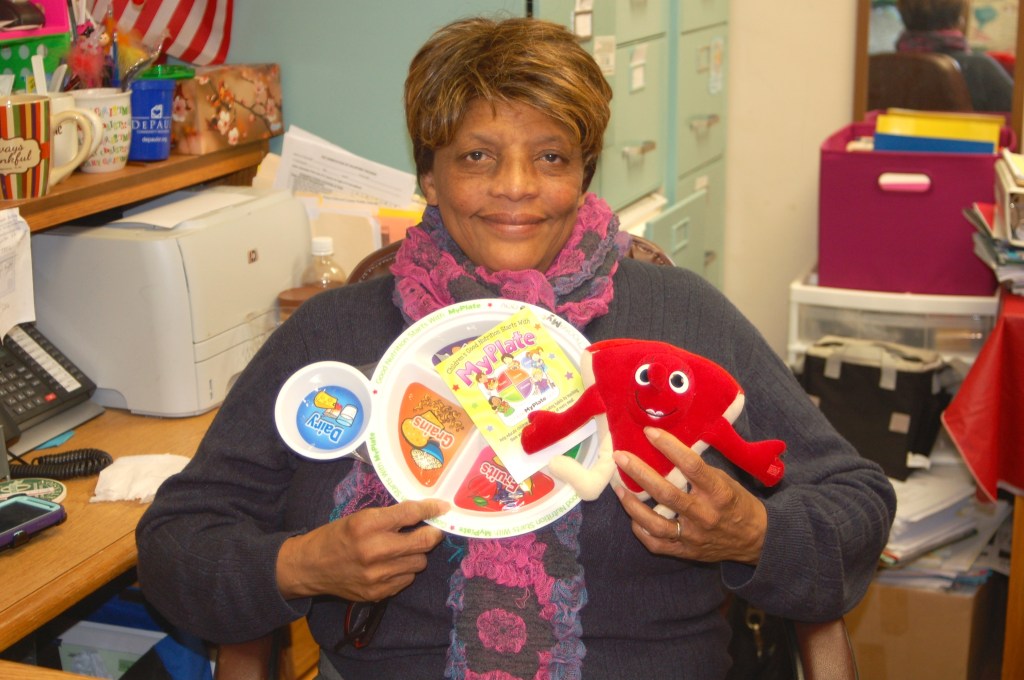Making the SNAP-Ed decision: Program offers healthy choices
Published 11:09 am Thursday, January 28, 2016

- Virginia Cooperative Extension SNAP-Ed nutrition educator Pauline Stokes uses “My Plate” and Hearty Heart of the “OrganWise Guys” to present healthy eating and lifestyle lessons to preschool children. Stokes assists limited resource individuals with recipes, meal planning advice and programs that promote a healthy lifestyle.
Pauline Stokes and the Virginia Cooperative Extension Service SNAP-Ed program are on a mission to help local families “Eat Smart, Move More.” Stokes shares her message with all ages — from kindergarten classes to senior citizens.
Stokes is one of 13 SNAP-Ed (Supplemental Nutrition Assistance Program – Education) nutrition educators in Virginia.
Trending
“I work with limited resource individuals,” Stokes said. “We teach how to use limited resources to eat healthy meals. All our recipes are USDA approved.”
Stokes, based in the Farmville’s Extension office, operates a volunteer-based program that covers seven counties in Central Virginia plus Appomattox and Lynchburg.
“I recruit and train volunteers to go out and reach the population,” Stokes said.
It is an impressive outreach. Last year Stokes, with the help of 90 volunteers, reached 4,500 students.
“We start with pre-K children, so when they get to high school they’ll be making healthy choices,” Stokes said. “I have a lot of Head Start students; the LEAP (Literacy, Eating and Activity for Preschoolers) curriculum is what we teach them to learn healthy habits. The children learn about different fruits and vegetables, and then we give them a taste.”
The LEAP program lives up to its name with an activity component.
Trending
“Exercise is a kind of throw off word, so we say ‘movement or game,’” Stokes said. “We also use the OrganWise Guys — dolls shaped like organs, to teach children to take care of themselves from the inside out.”
“Hearty Heart,” for example, is a cheerful heart-shaped guy who brings home the lesson that heart health is important.
“We show them to take care of the heart by moving and eating the right foods,” Stokes said.
For older students, Stokes offers “Teen Cuisine,” a program at Prince Edward County High School.
“The teens get hands-on experience with making certain dishes,” Stokes said. “They really enjoyed the last class — we made chicken nuggets and oven fries. We have a good time.”
The program for adults with limited resources is called “Eat Smart, Move More.”
“In this program we talk about protein, whole wheat, fruits and vegetables, the movement part, fixing menus and reading food labels,” Stokes said.
Stokes works with adults individually and in groups to share her nutritional message.
“The seniors at Piedmont Senior Resources love it,” Stokes said. “One 90-plus senior told me, ‘You’ve taught me so much — like learning to read food labels.’ Theses folks come back and tell you what they are doing.”
Young adults, Stokes noted, are the most difficult to reach.
“Menu planning is one of the biggest things we push,” Stokes said. “You see what you’ve got, plan meals out of that, and then you won’t have waste or buy on impulse.”
Stokes stresses these menu-planning skills to SNAP recipients who typically have a food budget of $4 a day.
Stokes is looking forward to expanding SNAP-Ed’s reach in the community in 2016 by partnering with the Farmville Farmers Market and presenting programs there this summer. Another community project Stokes hopes to reinstate works with local grocery stores. Is the “Smart Choice” program volunteers visit local stores and provide shoppers with samples and recipes of healthy dishes.
Statistics confirm that nutrition education programs such as the ones Stokes provides offer dividends. According to the Virginia Cooperative Extension web site, “Every dollar spent on nutrition education saves as much as $10 in long-term healthcare costs.”
“We try to keep it exciting for kids and adults,” Stokes said. “We teach hands-on so both kids and adults can learn the information and then do it on their own.”
Stokes believes the training she provides does make a difference.
“We reach these kids,” she said. “I really enjoy working with the young ones and teaching them healthy habits.”
Stokes knows the way to good health: “Eat Smart, Move More.” She also knows that while the SNAP-Ed decision is not a snap decision at all, it is well worth the effort.





